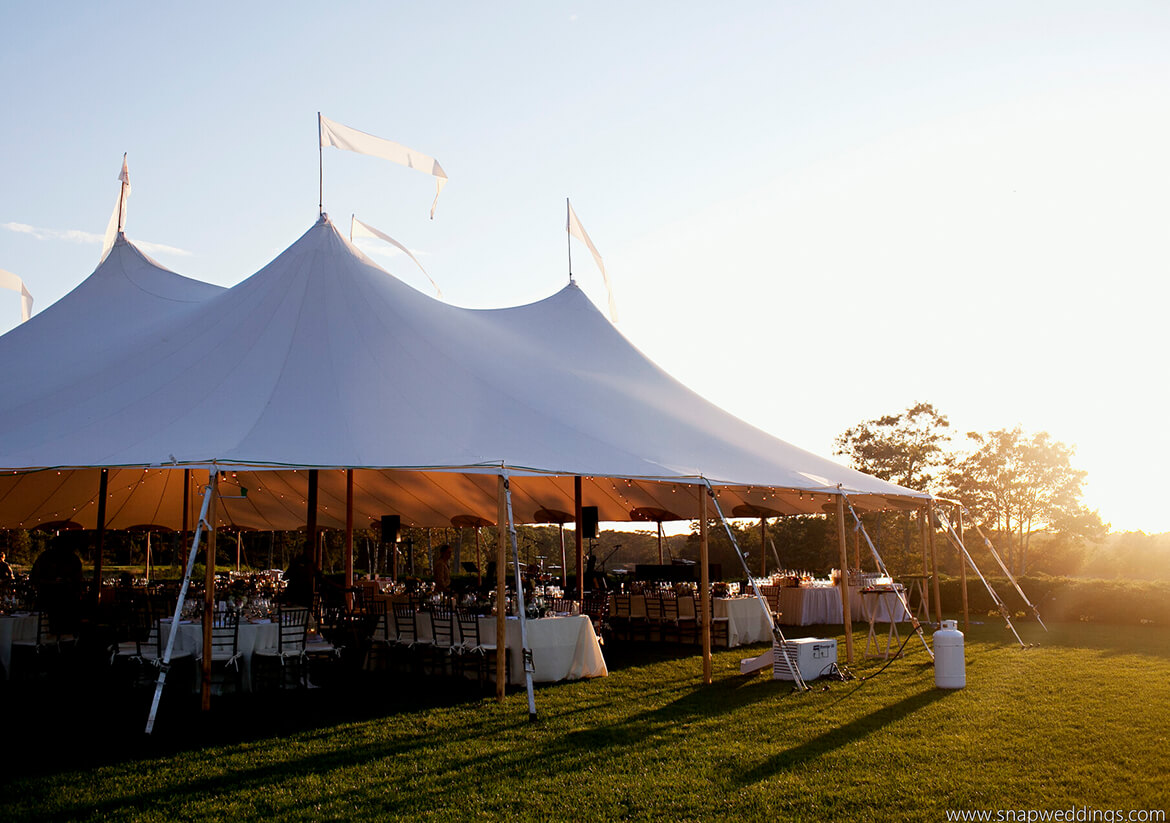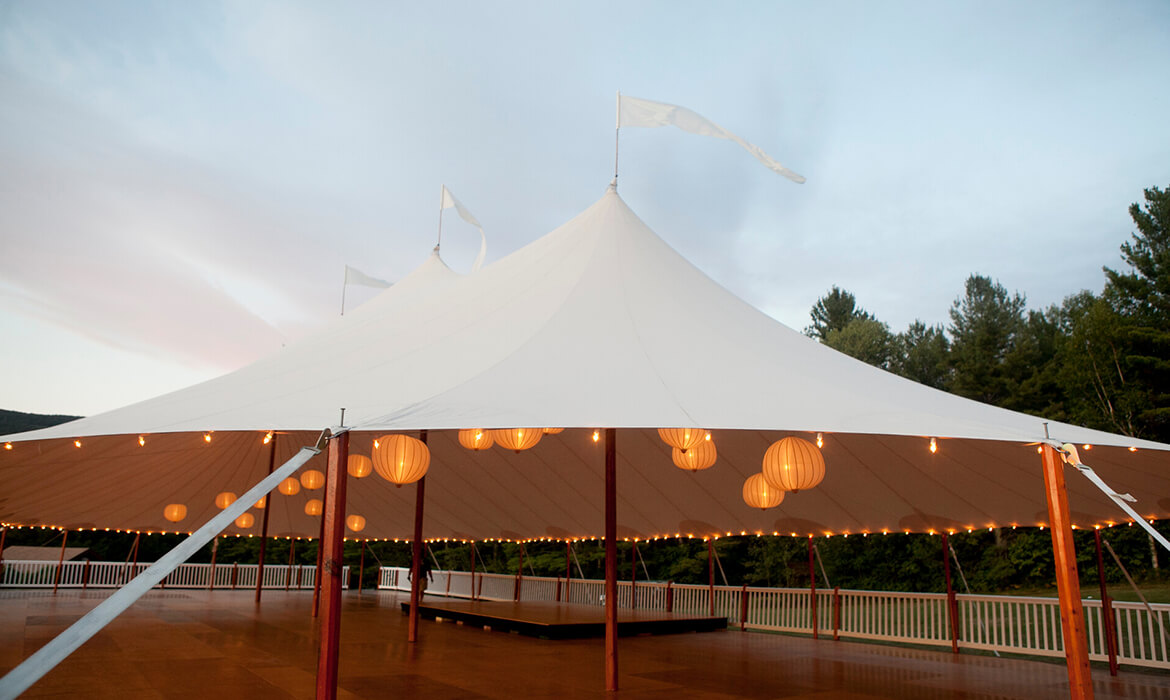You’ve been considering a tent for your wedding day or special event, but you don’t know where to start. From sizing to pricing to additional... Read More
You’ve been considering a tent for your wedding day or special event, but you don’t know where to start.
From sizing to pricing to additional rentals for your tent, we’ve got you covered.
In this post, you’ll learn:
- Why and when do you need to rent a tent?
- Pros and cons of tents
- What size tent do you need?
- What else do you need with your tent?
- What to ask a tent rental company
- How much will an event tent rental cost?
Why and when do you need to rent a tent for your event?
Here in New England, weather is never set in stone. No matter what season your outdoor wedding or special event is in, it’s helpful to have a backup plan. A rental tent is a perfect way to still enjoy the great outdoors and keep all of your guests comfortable and dry.
In the hot summer months, a rental tent will keep the sun off your guests and certainly shield them from any rainstorms. In the spring and fall, a tent will help you be prepared no matter which way the weather goes: too hot or too chilly. And in the winter, the tent will help keep your guests warm with the help of space heaters, as well as keep guests dry if there is snow or hail.
Don’t wait until the last second when it looks like inclement weather, rent the tent in advance and you won’t have to worry, no matter what kind of weather you have on your special day.
Pros and cons of rental tents
Rental tents come in a variety of shapes, sizes, and even colors. So how do you know which one is right for your event? Here are a few pros and cons for two of the most popular types of tents: pole tents and frame tents.
Pole tents like our Sperry Sailcloth Tent and Coastal Clear Tent give you the following pros and cons:
Pros: Pole Tents
- Aesthetically pleasing
- Less expensive
- No liner needed
- Short setup time
Cons: Pole Tents
- Must be staked to ground
- Needs clearance on all sides for stakes and anchor ropes
- Will have poles (obstructions in the middle)
Frame tents like our Clear Frame Tents, Bayview Frame Tents, and Traditional Frame Tents give you the following pros and cons:
Pros: Frame Tents
- Can be connected with additional frame tents to create a unique structure
- Can be put on any surface
- Can be left up for some time, if needed
- No poles or obstructions
Cons: Frame Tents
- Frame is visible from inside the tent (liners can be rented to cover these)
- Longer setup time
- More expensive
What size rental tent do you need?
The tent size you need to rent comes down to two main factors:
- What size tent can your venue accommodate?
- How many guests do you expect at your event?
Ultimately, your tent rental company will help you determine the right size for your special event or wedding based on these factors.
However, in very general terms, a dining tent should allow about 10 square feet per guest. If you’re using the tent for a wedding reception or need space for entertainment or a dance floor, you’ll want to add about 30% to that number.
Here is a general idea of how large of a pole tent you’d need for the following number of guests:
- Up to 100 guests: 30 x 60 pole tent
- Up to 140 guests: 40 x 60 pole tent
- Up to 200 guests: 40 x 80 pole tent
Again, consult your rental tent specialist for the exact size you’ll need.
What else do you need with your tent?
For better or worse, you’re not quite finished by renting a tent. Next, you’ll need to consider what add-ons you’ll need. In other words: what is going to go inside your tent?
Tent Flooring
From dance floors to laydown floors to leveled floors to bandstands and stages, there are any number of setups you might need for your special event. Remember, you’re recreating an indoor venue outside, so it’s important to include all the comforts of an indoor space for your guests.
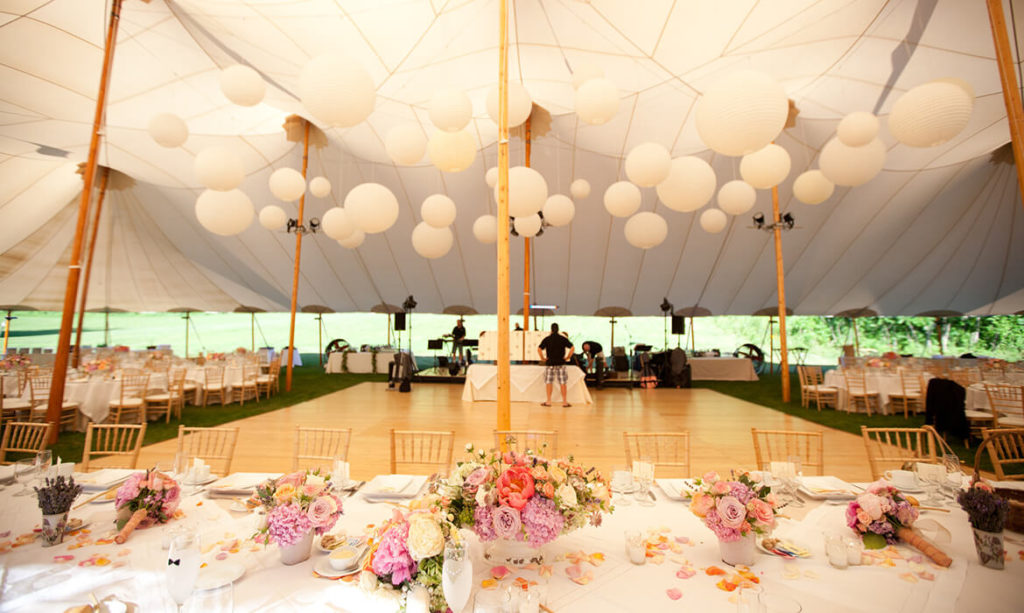
Tent Furniture
Now you’ve rented a tent, it’s time to fill it! Consider what you need for your event: from tables and bars to chairs and other products.
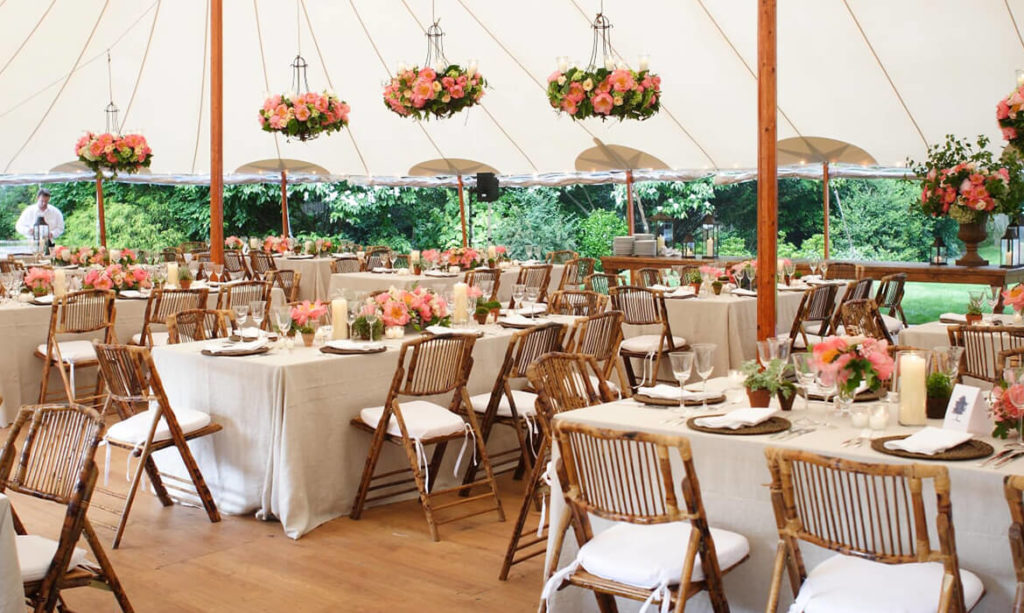
Tent Liner
Typically used inside frame tents to hide the framing structure, liners are often used as a faux ceiling. Liners are often gathered and draped fabric along the top of the tent.
Tent Lighting
Once the sun goes down (and even prior!), you need a way to keep your tent well-lit. Depending on the overall feel and theme of your special event, you might choose paper lanterns, candelabras, bistro lighting, chandeliers, onion lanterns, perimeter string lights, or a mix of several lighting options!
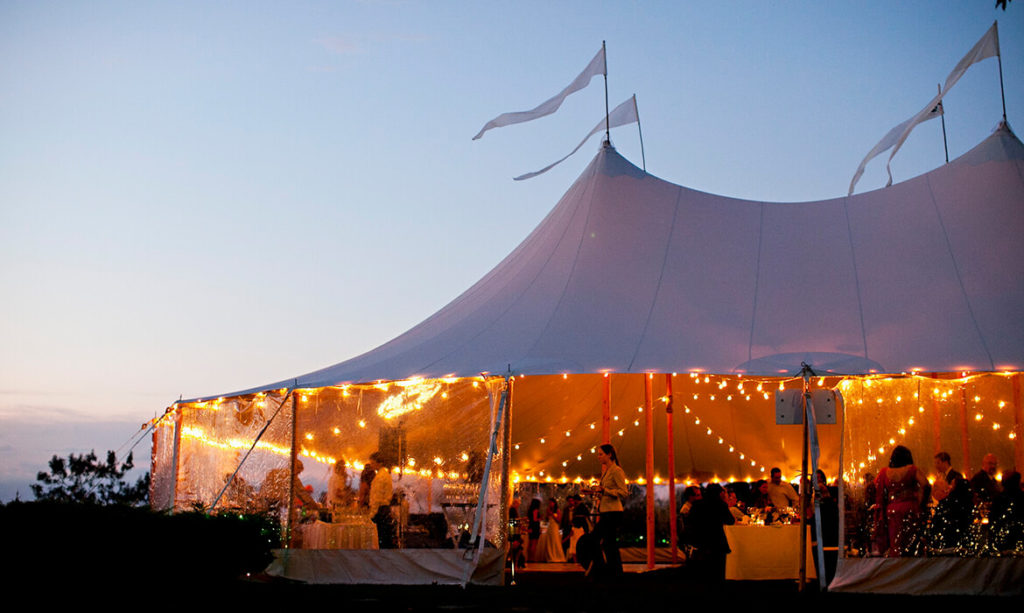
Tent Walls
Should the weather turn colder, many hosts choose to invest in tent walls to keep their guests even more comfortable when the sun goes down.
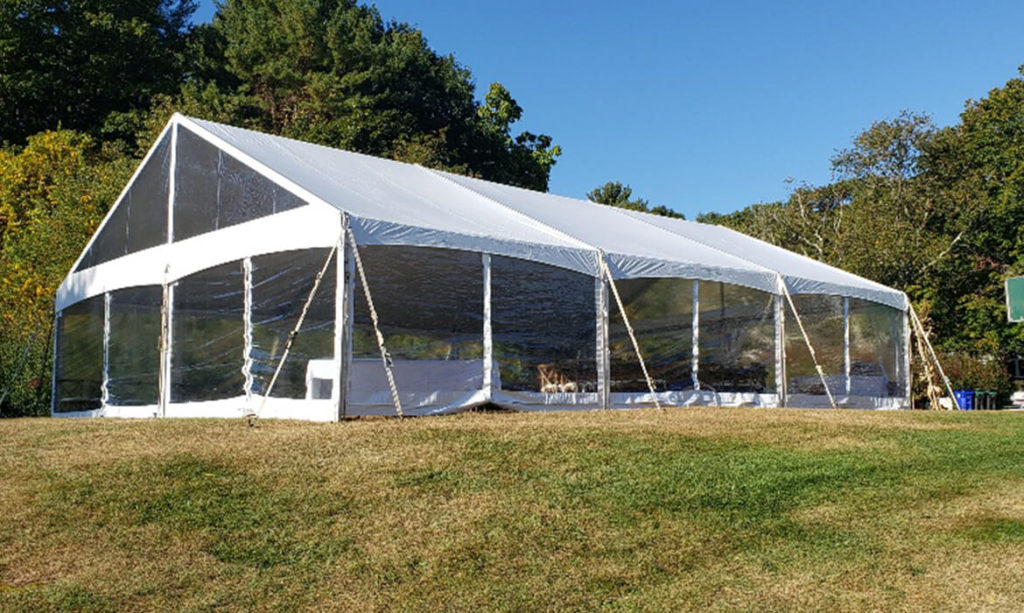
What to ask a tent rental company
Now that you have a really good sense of everything involved for a tent rental, it’s time to find the right company for your event.
Location is certainly your primary concern: you need to find a local company who can help you find the perfect tent rental. But beyond that, what questions should you ask of prospective companies?
- Do you have a delivery fee?
- Do you handle fire and zoning permits?
- Do you survey the venue before the event?
- Do you offer more than tend to rent?
- Do you offer discounts for other rentals?
- How long does setup and breakdown take?
- How long is the tent rental for?
- Is anything else included? (lighting, flooring, etc.)
- Is there a labor and setup fee?
- What is your date change or cancellation policy?
- What size tent do you recommend for my event?
How much will an event tent rental cost?
The following rates are in general terms and may vary based on your location, so please consult with your tent rental company.
Tent rental pricing varies drastically from $500 for smaller tents (like catering tents) to over $5,000. Pricing depends on size, type of tent, length of rental, and much more.
We hope you enjoyed this how-to guide for renting a tent for your wedding or special event. And for help with New England event tent rentals, give us a call at Sperry Tents Seacoast!
